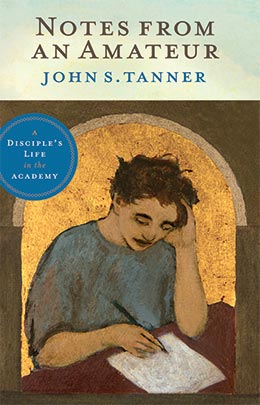Curious George and a Formula for Lifelong Learning
John S. Tanner, Notes from an Ameteur: A Disciple’s Life in the Academy (Provo, UT: Religious Studies Center; Salt Lake City: Deseret Book, 2011), 13–5.
My six-year-old grandson, Joshua, will be Curious George for Halloween. He is currently obsessed with Curious George. He reads Curious George books, watches the Saturday cartoon, and recently had a Curious George–themed birthday party. I suppose Joshua identifies with Curious George because he too burns with impetuous curiosity. This often gets him into scrapes, as it does George. The other evening, for example, Joshua got lost in the Uintas with a storm blowing in. His mother was terrified. “I was just exploring, Mom,” he said. A few weeks ago Joshua got stuck between the first and second floor in the laundry chute at our house. “I was just exploring, Grandpa.”
No doubt because it can lead to peril, curiosity is the object of many cautionary stories and adages. Pandora’s curiosity loosed a host of woes upon the world when she opened a box. Faust’s curiosity led him to sell his soul for secret knowledge. The Fall is popularly associated with illicit curiosity for forbidden knowledge. Beware curiosity, these stories seem to agree. After all, curiosity killed the cat.
Yet, from another point of view, curiosity can be seen as a great good, the engine which drives discovery and moves the world forward. How much progress has come from those possessed of curiosity and passion for learning—those driven to explore the woods and to discover where laundry chutes lead.
The institutional home for organized curiosity is, or should be, the academy. Education should at once indulge and discipline our innate curiosity. It should keep the child—Curious George, if you will—alive in every learner, faculty and student alike.
According to Thomas Friedman, curiosity and passion are key prerequisites for education in a “flat world,” where information is readily available and where global markets reward those who have learned how to learn and are self-motivated to learn. In today’s world, he argues, it is more important to be passionate and curious than to be merely smart. Friedman has reduced this principle to a formula: CQ + PQ > IQ, meaning Curiosity Quotient plus Passion Quotient is greater than Intelligent Quotient. Friedman says that he lives by this formula: “Give me the kid with a passion to learn and a curiosity to discover and I will take him or her over the less passionate kid with a huge IQ every day of the week.” IQ “still matters, but CQ and PQ . . . matter even more.”
They matter for faculty as well as for students if we hope to “implant in them a love of learning,” as we claim in our Aims. As Friedman says, “You can’t light a fire of passion in someone else if it doesn’t burn in you to begin with.” [1]
I recently felt such passion and curiosity burning bright in a young father, new bishop, and experimental physics professor back East. His brilliance was exceeded only by his infectious, childlike enthusiasm for his research. I was struck by his passion as he effused about his current research to slow down and even stop light. Now, I naively thought the speed of light was a constant (C), but evidently it can be slowed down and perhaps stopped. He tried to tell me how, but his explanation was mostly lost on me. What was not lost was his unabashed curiosity and passion for quantum physics. These shone from his eyes as intensely as the love he had for the baby he dandled on his lap.
Of all people, Latter-day Saints should embrace curiosity and passion for learning. After all, we do not understand the Fall as a precautionary tale against curiosity, nor condemn Eve for desiring godlike knowledge. Rather, we proclaim that humans can and should strive to become like God, whose glory is intelligence. We affirm that we ought to learn all we can in this life and expect to continue learning in the next. For us, lifelong learning is not simply a practical expedient for a flat world. It is a theological imperative for this world and the world to come.
Whether we consider the exigencies of an eternal or flat world, CQ + PQ > IQ is a good formula to live by. It reminds us to keep Curious George alive in our students and in ourselves.
Notes
[1] Thomas Friedman, The World Is Flat (New York: Picador, 2007), 313–15.
